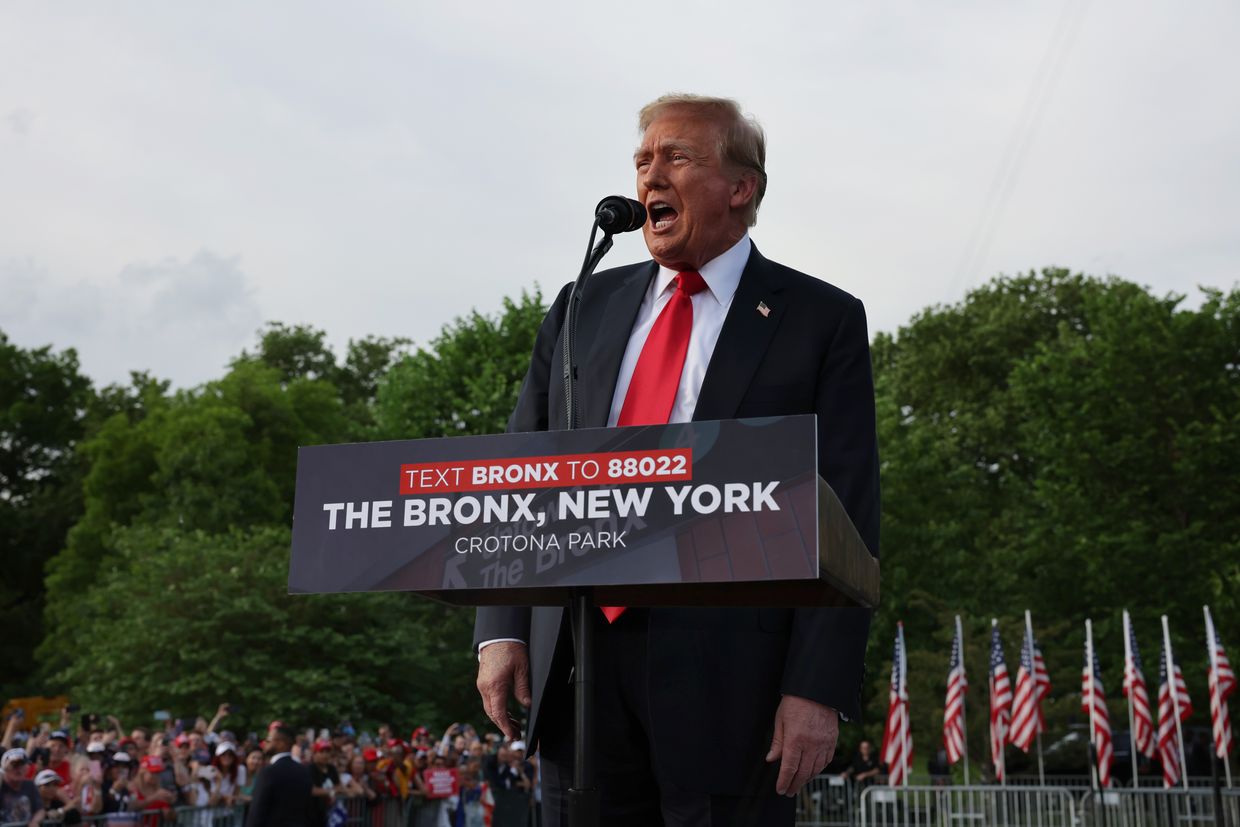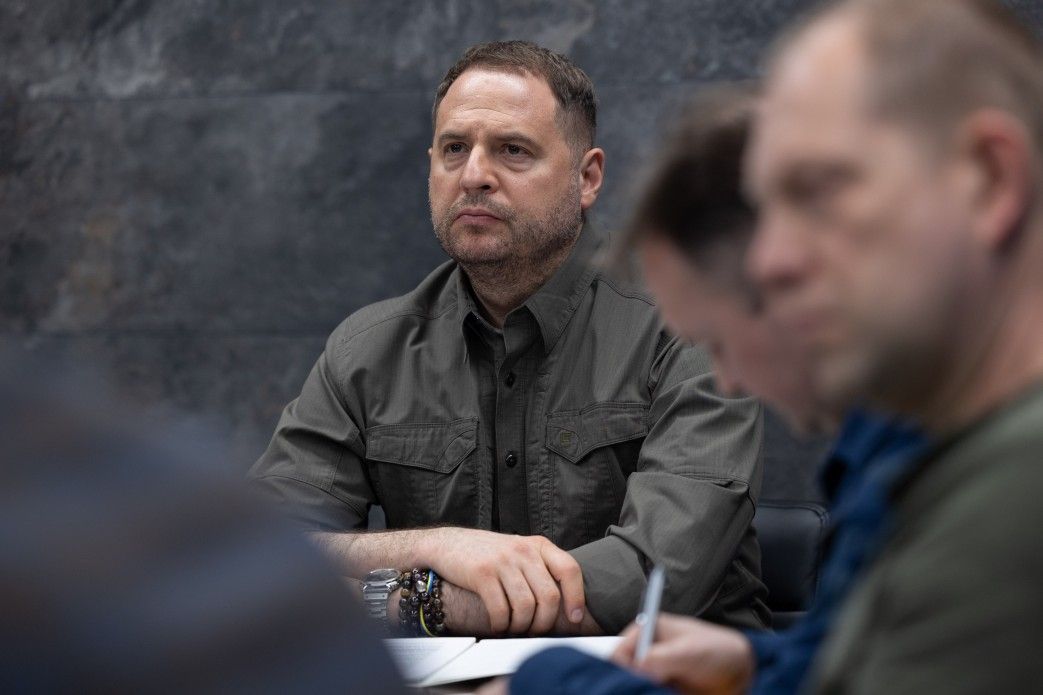Trump reportedly considering making deal with Putin to block Ukraine's NATO accession, officials tell Politico

Former President Donald Trump is reportedly considering the possibility of making a deal with Russia to block the future NATO accession of certain countries, namely Ukraine and Georgia, Politico reported on July 2, citing unnamed officials "familiar with the thinking inside Trump's inner circle."
The potential plan was the latest signal that Trump, the presumptive Republican presidential nominee, intends to dramatically shift the position of the U.S. in regard to Ukraine and its larger commitments to NATO.
Trump has promised to end Russia's full-scale war against Ukraine within 24 hours if elected but has declined to publicly elaborate on how he plans to do so. Two top Trump advisors also recently proposed a plan that would cease military aid to Ukraine unless it agrees to hold peace negotiations with Russia.
One of the sources told Politico that Trump "would be open to something foreclosing NATO expansion and not going back to the 1991 borders for Ukraine."
The comments echo reporting by the Washington Post, which wrote in April, citing unnamed sources, that Trump privately said he could end Russia's war by pressuring Ukraine to cede Crimea and Donbas to Moscow.
At the same time, Trump said at the first presidential debate in June that he rejected the terms that Russian President Vladimir Putin proposed for a potential ceasefire, which entailed Ukraine giving up on its quest to join NATO and the complete withdrawal from the four regions of Ukraine, plus Crimea, that Russia has illegally annexed.
Russia does not currently occupy all of the territory in the four regions in question.
In line with previous suggestions, Trump is also reportedly considering adjusting U.S. participation in NATO.
One of the main tenets of the proposed shift would be the creation of a "two-tier NATO" system, in which only countries that met the 2% of GDP spending threshold would get to "enjoy the defense largess and security guarantee of the U.S."
On paper, the proposal appears to violate NATO's Article 5, which requires all members to come to the aid of any single member that is attacked, but officials from Trump's circle said that "the language in Article 5 is flexible and does not require any member to respond with military force."
Trump drew international outrage after saying in February that he would encourage Russia to do "whatever the hell they want" to NATO member countries failing to meet the 2% defense spending pledge.
Officials said the former president's views on Ukraine and NATO are largely based on self-interest.
Republican Congressman Don Bacon told reporters that Trump had reportedly said, "If Ukraine wins, what will be the benefit?"















